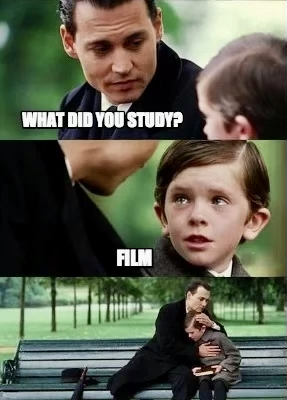What is Cinematherapy?
The core concept of cinematherapy lies in our ability to watch movies for more than enjoyment. Movies already show us aspects of our lives and the lives of others that resonate. By adding a little more intentionality, they can help us process our past, understand our present, and shape the futures we want for ourselves.

Films are the new novels for a lot of people.
So many brilliant people don’t have as much time as they would like to read books. You’re reading right now, and thank you! But reading on every topic you are interested in can feel like an overwhelming endeavor, even for the most voracious bookstore nerds. Films (and other visual media) might be the novels of our time in that we tend to know what’s new, we talk about them a lot after they’ve just been released, and those of us who like to feel well-educated can discuss all kinds of movies. So, if it is a pastime we enjoy anyway, let’s look at ways we can add them to our wellness repertoire. I know it’s a cheesy phrase, but they do have the potential to influence change in our lives, which is what we aim for, right?
On the nose? That’s not Healing Film Study.
Other cinematherapy-adjacent viewers’ guides discuss how movies can be used to understand complicated situations better and process emotions. And they can be a useful starting point. I’ve found that in my previous life as a producer and scriptwriter; however, I often have seen elements of the story or characters that might otherwise have been missed. These elements are often why I’ve recommended the film, so I began creating guides to support my discussions with clients after they did their homework (read: ordered a pizza and watched a movie).
This part of the website aims to share this particular version of cinematherapy with people who cannot hire me to be their therapist but are still interested in using visual media as a tool in their healing.
The problem with most Cinematherapy approaches
Too often, mental health clinicians who embrace film study for healing will select films that are fantastically on the nose. That is, the films they select to help people in active addiction feature plots and characters that reflect active addiction. A client going through a divorce is recommended a film about divorce. A client with a midlife crisis is shown a film about characters in midlife crises.
In my experience, people in active addiction don’t need to learn more about active addiction. People who are getting divorced rarely desire to watch beautiful actors go through a divorce, especially given the film industry’s penchant for happy endings. And while many people go through crises in midlife, few of us tend to identify with a “generic” representation of those issues. Midlife movies don’t inspire midlife viewers to change their approach to life.
A Different Approach to Healing Film Study
I’ve started with 64 films that reflect eight aspects of the eightfold path. They do have subtle relationships to the 12-step programs, but they were selected because of the issues they elucidate. These films teach skills. These films provide examples to contemplate when studying problems in your own life. They are not after-school specials. They are a curriculum of healing film study.
Delve into the enriching realm of cinema with our carefully designed guides. Each guide is created to enhance your connection with films, exploring the evocative scenes and themes that align with your own life experiences. Whether you’re navigating complex feelings, searching for motivation, or looking to reflect on your own story, our film guides present enlightening perspectives and thought-provoking prompts that elevate your viewing beyond simple enjoyment.